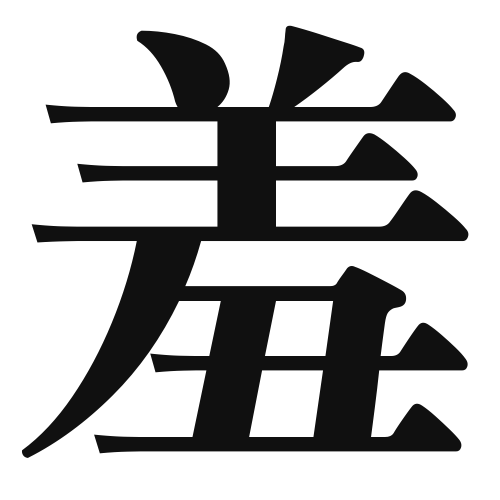1. Overview of Meaning
The kanji “羞” (shū) means “shame” or “embarrassment.” It conveys feelings of discomfort or self-consciousness in social situations.
2. Formation and Radical
Formation of the Kanji: The kanji “羞” is a phonetic-ideographic character (形声文字). It combines the radical for “feeling” (心) and a phonetic component that suggests its pronunciation.
Radical: The radical of “羞” is 心 (kokoro), which means “heart” or “mind,” indicating that the concept of shame is deeply connected to emotions.
3. Examples of Usage
Common Words and Phrases:
- 羞恥心 (shūchishin) – sense of shame
- 羞じる (hajiiru) – to feel ashamed
Example Sentences in Daily Conversation:
- 彼は失敗して羞恥心を感じた。 (Kare wa shippai shite shūchishin o kanjita.) – He felt shame after failing.
- その話を聞いて、私は少し羞じた。 (Sono hanashi o kiite, watashi wa sukoshi hajiita.) – I felt a bit embarrassed after hearing that story.
4. Synonyms and Antonyms
Similar Kanji:
- 恥 (haji) – also means “shame,” but can imply a more general sense of embarrassment without the emotional depth of “羞.”
Antonyms:
- 誇り (hokori) – means “pride,” representing a positive self-regard, the opposite of feeling shame.
5. Cultural and Historical Background
Connection to Japanese Culture: In Japanese culture, the concept of “shame” is significant, often influencing social behavior and interpersonal relationships. It is considered important to maintain harmony and avoid causing embarrassment to oneself or others.
Proverbs and Idioms:
- 恥をかく (haji o kaku) – to lose face or to be embarrassed, often used in contexts where one’s reputation is at stake.
